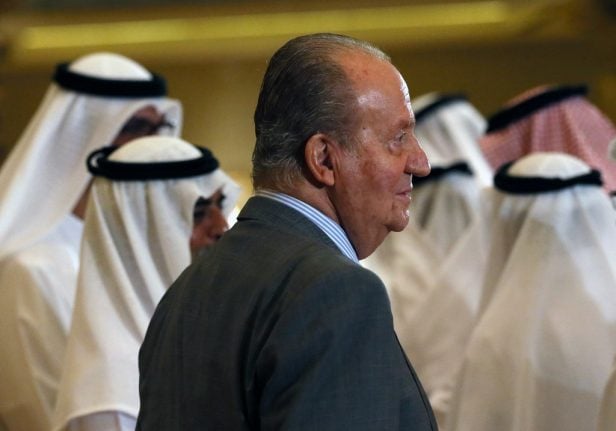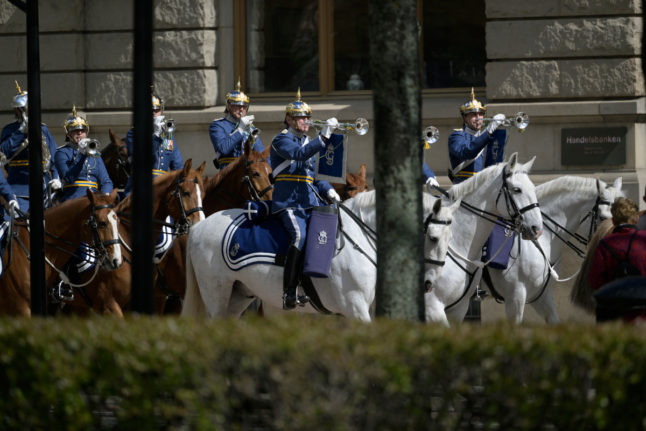Spain's former king Juan Carlos, who went into exile this month in the face of graft allegations, is in the United Arab
Emirates, the royal palace said Monday, ending the mystery over his whereabouts.
The 82-year-old, who has long had warm relations with the Gulf monarchies, “travelled to the United Arab Emirates on August 3rd and he remains there,” a spokesman said without giving further details.
In a surprise move, Juan Carlos announced on August 3 that he was leaving Spain to prevent his personal affairs from undermining his son King Felipe VI's reign, but did not say where he would be going.
The royal palace had up until now refused to reveal where Juan Carlos is living, saying he would announce it himself if necessary.
It was first reported that he had travelled to the Dominican Republic or Portugal, where he spent part of his youth, but pro-monarchy Spanish daily ABC later said the former king had gone to Abu Dhabi, the capital of the UAE.
While Juan Carlos is not under formal investigation, revelations by a former mistress, German businesswoman Corinna Larsen (pictured below), raise legal questions about his financial affairs which officials are looking into in Spain and Switzerland.
The daily Tribune de Geneve has reported that a Swiss prosecutor is focusing on $100 million (€85 million) which that late Saudi king Abdullah allegedly deposited in 2008 into a Swiss bank account to which Juan Carlos had access.
In conversations which were apparently recorded without her knowledge that were leaked to the media, Larsen claimed Juan Carlos had collected a payoff relating to a 2011 high-speed rail contract in Saudi Arabia that was awarded to a consortium of Spanish firms.
The 450-kilometre (280-mile) link between Mecca and Medina was inaugurated in 2018.

Photos: AFP/Wikipedia
Royal apology
Spain's Supreme Court in June announced an investigation to determine whether the contract had involved the “crime of corruption in international transactions” and whether Juan Carlos was legally responsible — but only for
acts committed after his abdication in 2014, because of the immunity he enjoyed until then.
Juan Carlos ascended the throne in 1975 on the death of the fascist dictator Francisco Franco and ruled for 38 years before abdicating in favour of his son Felipe VI in June 2014 — just two years after he apologised to Spaniards for jetting off on an elephant-hunting trip in Africa with Larsen as Spain grappled with a financial crisis.
He was a popular figure for decades, playing a key role in the democratic transition from the Franco dictatorship which ruled Spain from 1939-1975.
But a steady flow of embarrassing media stories about his past lifestyle and personal wealth have eroded his standing in recent years and renewed debate over the future of the monarchy in Spain.
Polls show Spaniards are roughly equally split over whether their country should remain a monarchy or become a republic.
Older people and conservatives are more likely to back the monarchy, while younger people and leftists are more likely to oppose it.
'Fleeing justice'
Anti-monarchist parties have accused Juan Carlos of “fleeing justice” but his lawyer has stressed that he would remain available to answer questions from prosecutors.
A majority of Spaniards, 56.2 percent, feel his decision to move abroad is “misguided”, according to a poll published Sunday in the daily ABC, with only 25.4 percent saying it was the right step.
An even greater number, 60.9 percent, believe his self-imposed exile is harmful for his son, the current King Felipe VI, according to the poll of 802 people carried out August 10-14th.
Since ascending to the throne in 2014, King Felipe VI has since taken steps to improve the monarchy's image, such as imposing a “code of conduct” on royals.
Earlier this year he stripped his father of his annual allowance of nearly €200,000 euros after new details of allegedly shady financial dealings emerged.
READ ALSO: The fall from grace of former Spanish king Juan Carlos



 Please whitelist us to continue reading.
Please whitelist us to continue reading.
Member comments